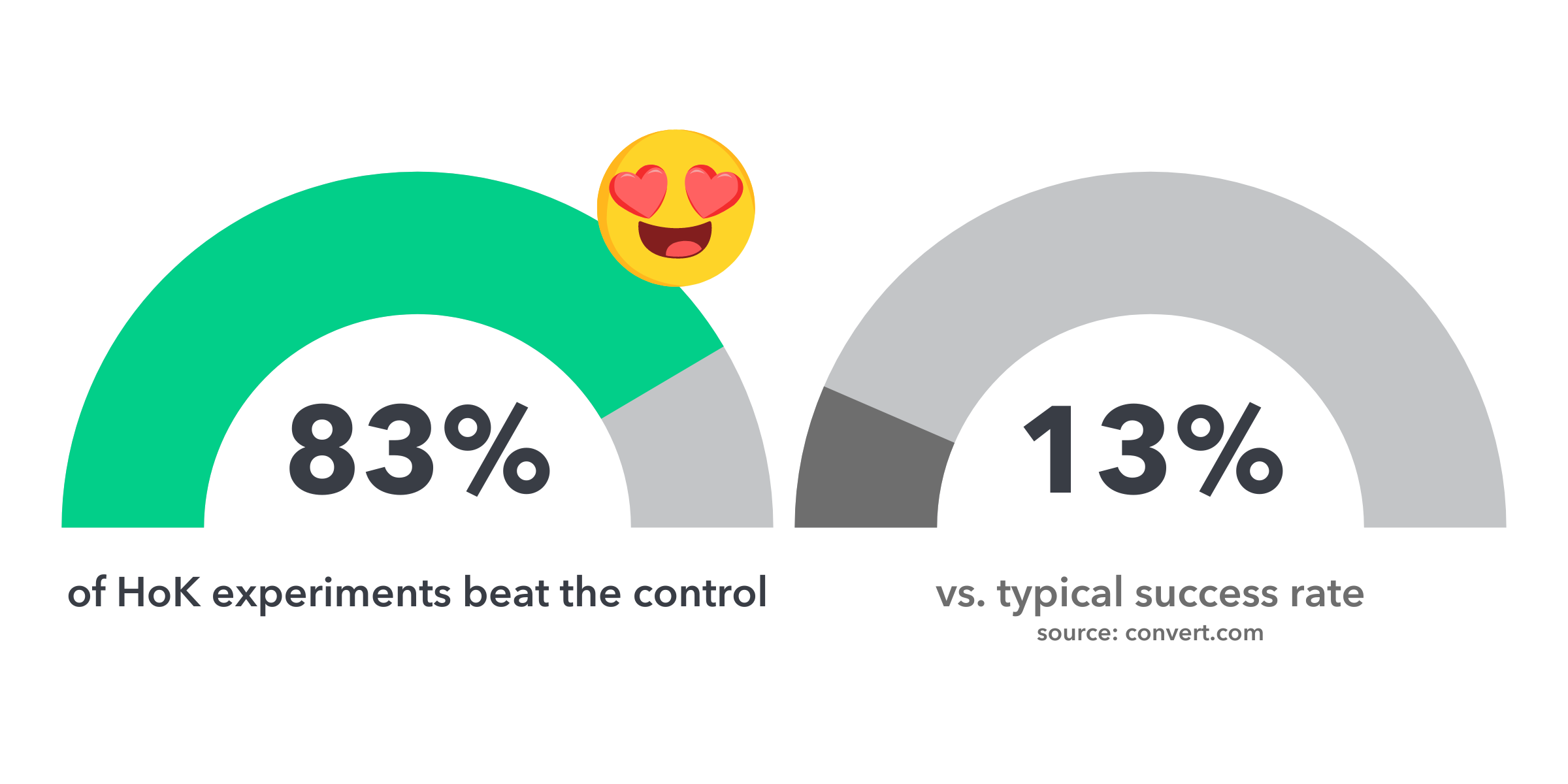Stop Saying It
“If I had asked people…
"If I had asked people what they wanted, they would have said faster horses." Henry Ford didn't actually say it and it's a lazy argument against customer research, so be sure to correct the record when you hear it in a meeting.
Legitimate customer research isn't relying on the customer to solve problems, that's not their job, it's ours. But no one is better at revealing problems than the customers themselves, this is where research drives more effective experimentation & innovation.
Products exist to solve problems and fill needs -- whether that's news, food, cars, or computers. Those brands remembering that's why they exist, and obsessively focused on empathizing with customers then developing innovations that solve their current problems, will sustain growth over time and through changing markets.
Our exceptional test success rate at House of Kaizen is largely the result of an agile and insightful approach to customer research. Too often we see that research is either dismissed as unnecessary, or executed without experimentation in mind, so it’s just not as actionable as it can be.
Thankfully customer research is cheaper and easier to acquire than ever before. And when coupled with a sound and hypothesis-driven research design, it can do wonders to smooth out the volatility of changing markets and make for more sustainable growth.
As an example:
-42% bounce rate
+27% articles per session
+12% paywall subscription starts
When Newsday sought to increase engagement, their leadership specifically targeted the goals of reducing bounce rate, increasing articles per session, and related article reads. Our collaboration started with research and resulted in a 100% test success rate.
Erik Zenhausern will present more about this effort at the ADMA Audience Development Media Alliance conference next week. If you’re headed there, be sure to say hi and hear directly from him.
Research revealed reader pain points related to navigation, homepage and article page layouts that could be solved to improve engagement. These insights inspired hypotheses we then prioritized and honed into a series of tests, all of which succeeded in their aim — contributing to higher engagement, retention, and as a bonus, higher new subscriber acquisitions through the paywall.
Could this have been achieved without the research, or with research designed to extract solutions rather than problems? It’s possible, but not likely at a 100% test success rate, and I’m sure it would have taken a lot longer to capture the increased performance.
Through many market cycles, and from new product launches to mature product optimization, we’ve learned that sustainable subscription growth boils down to two priorities and how well they’re practiced: empathy & adaptability.
Empathy is truly working to understand customers by their discrete differences, and the ways you can improve their lives with your product. Without customer empathy, it's difficult to build and maintain customer loyalty.
Adaptability is constantly testing variations that allow you to thrive in the face of change — be it customer behaviors, attitudes, or market conditions. Without business adaptability, subscription products can quickly become irrelevant.
Every market change is an opportunity to adapt and move ahead of those less capable of doing so, but only if you’re understanding how to better solve the problems of your customers and are willing to try new things. Many aren’t understanding or willing, and though they may be frustrated with the present challenges, they’re stuck. Now’s not the time to be stuck.
Let me know if you’re struggling with research, either to justify the investment or to make better use of what you have.
Thanks
- Matt
P.S. Join us next week for an AMA with Corey Newhouse to talk about subscription gifting
Did you find this email worth your time?
🤩 Worth it | 😕 Meh | 🙄 Nope
The HoK community is truly incredible, and word-of-mouth referrals are a huge help. If you found this email worth your time, please pass it on to others who might as well. Many thanks to those of you who already have! 🙏
Did someone forward this email to you?
Subscribe for free if you’re into it.


